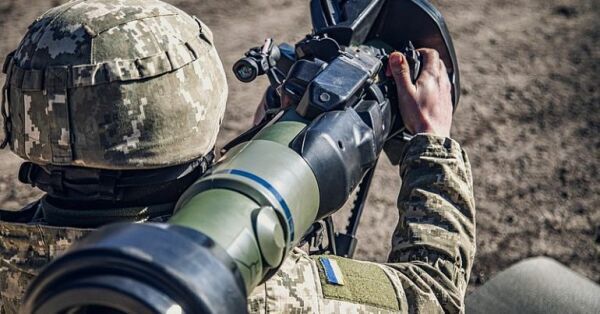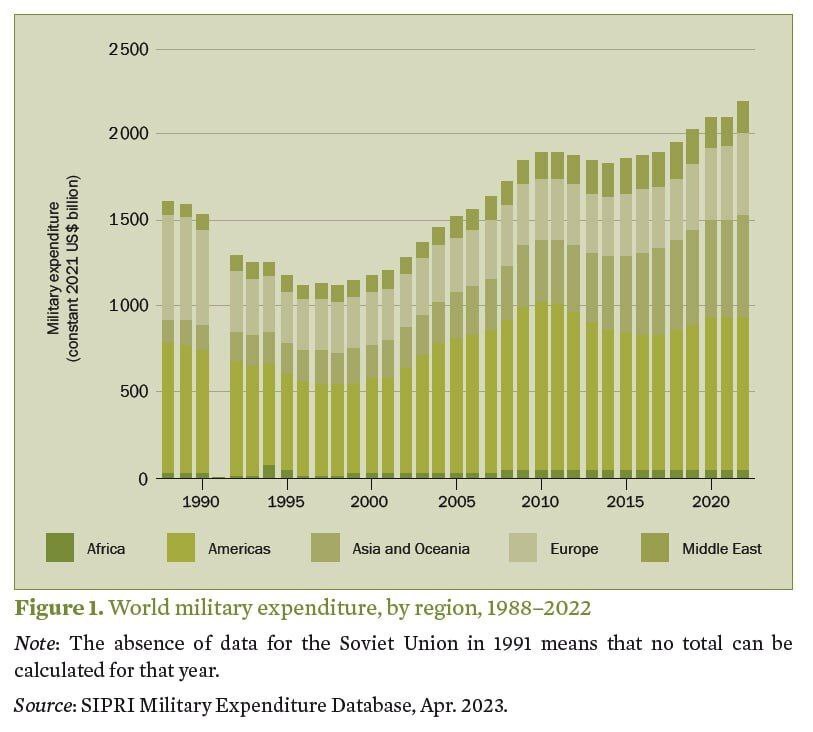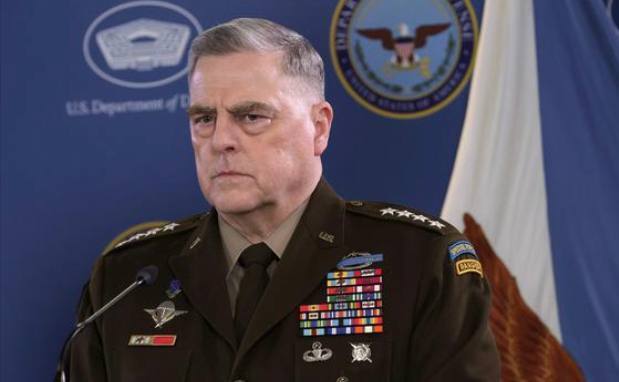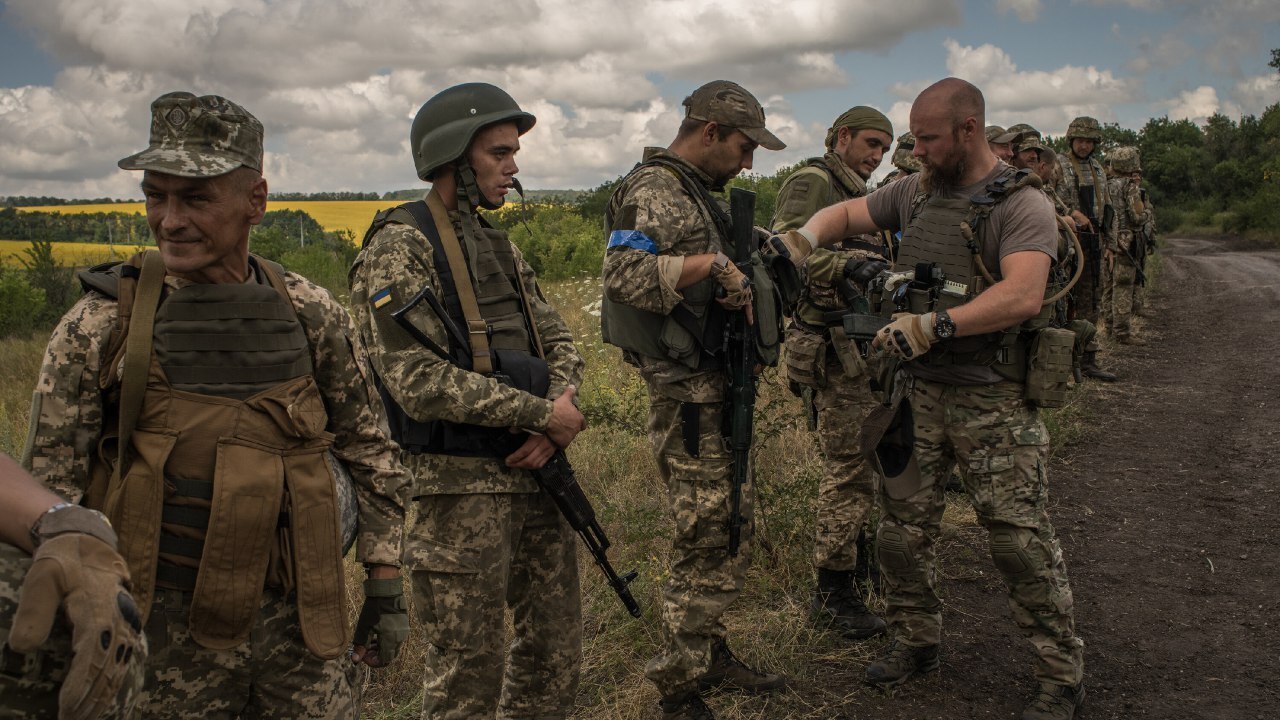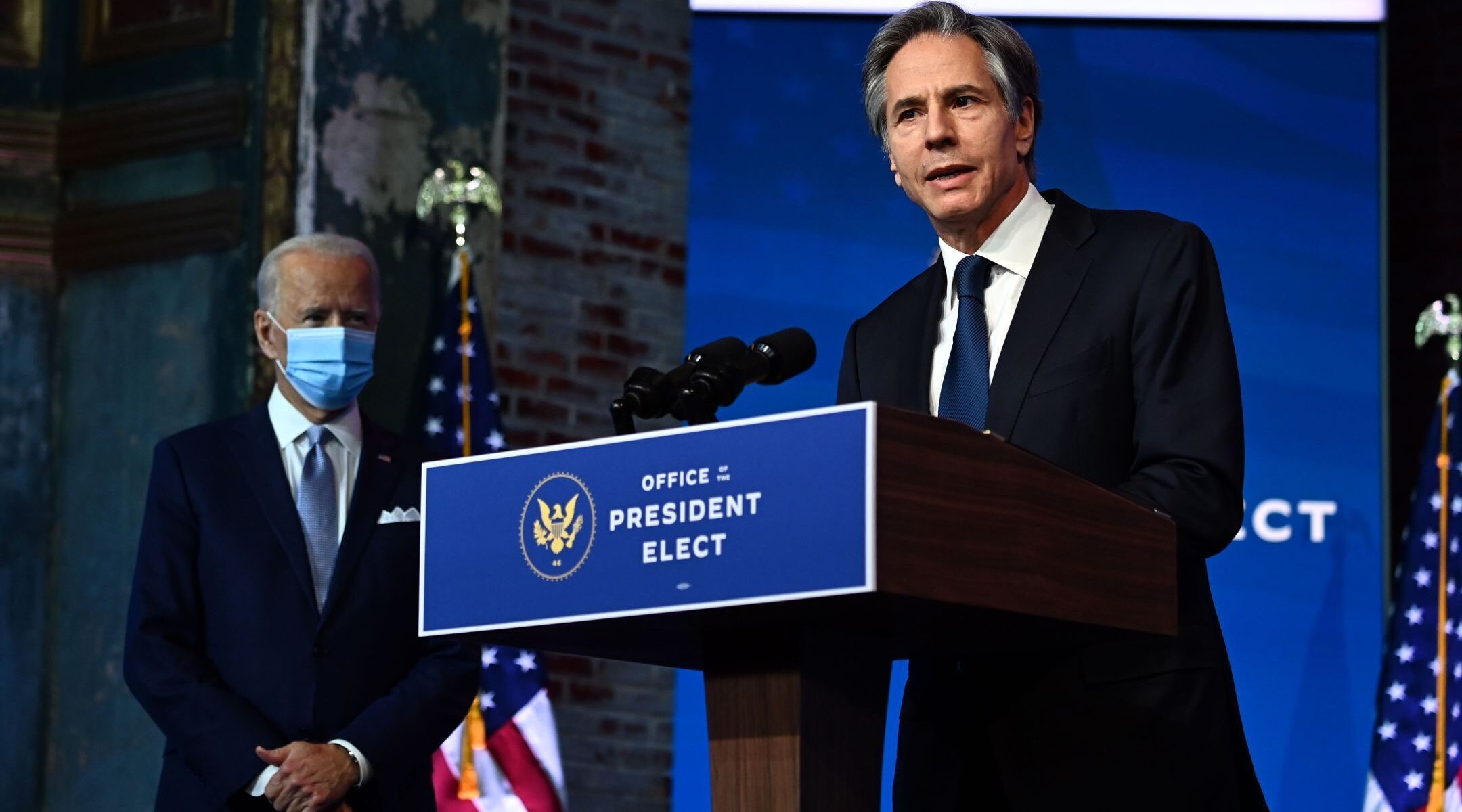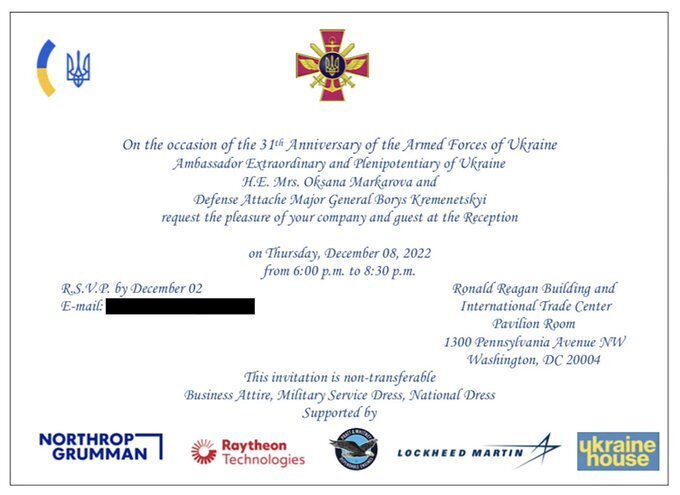Stolen Valor: The U.S. Volunteers in Ukraine Who Lie, Waste and Bicker
https://www.nytimes.com/2023/03/25/world/europe/volunteers-us-ukraine-lies.html
it's behind Paywall so here the text:
People who would not be allowed anywhere near the battlefield in a U.S.-led war are active on the Ukrainian front, with ready access to American weaponry.
March 25, 2023, 12:01 a.m. ET
A row of soldiers in fatigues lining a dirt road under a cloudy blue sky as one man faces them and touches equipment attached to someone’s chest.
Axel Vilhelmsen trained Ukrainian soldiers last year as part of the Mozart Group, which two former Marines established to help Ukraine. It disbanded after one founder sued the other, alleging theft and harassment.Laura Boushnak for The New York Times
By Justin Scheck and Thomas Gibbons-Neff
Justin Scheck, an international investigative reporter, and Thomas Gibbons-Neff, the Ukraine correspondent, reported this article from Ukraine and around Europe.
They rushed to Ukraine by the thousands, many of them Americans who promised to bring military experience, money or supplies to the battleground of a righteous war. Hometown newspapers hailed their commitment, and donors backed them with millions of dollars.
Now, after a year of combat, many of these homespun groups of volunteers are fighting with themselves and undermining the war effort. Some have wasted money or stolen valor. Others have cloaked themselves in charity while also trying to profit off the war, records show.
One retired Marine lieutenant colonel from Virginia is the focus of a U.S. federal investigation into the potentially illegal export of military technology. A former Army soldier arrived in Ukraine only to turn traitor and defect to Russia. A Connecticut man who lied about his military service has posted live updates from the battlefield — including his exact location — and boasted about his easy access to American weaponry. A former construction worker is hatching a plan to use fake passports to smuggle in fighters from Pakistan and Iran.
And in one of the more curious entanglements, one of the largest volunteer groups is embroiled in a power struggle involving an Ohio man who falsely claimed to have been both a U.S. Marine and a LongHorn Steakhouse assistant manager. The dispute also involves a years-old incident on Australian reality TV.
Such characters have a place in Ukraine’s defense because of the arms-length role the United States has taken: The Biden administration sends weapons and money but not professional troops. That means people who would not be allowed anywhere near the battlefield in a U.S.-led war are active on the Ukrainian front — often with unchecked access to weapons and military equipment.
Many of the volunteers who hurried to Ukraine did so selflessly and acted with heroism. Some have lost their lives. Foreigners have rescued civilians, aided the wounded and fought ferociously alongside Ukrainians. Others raised money for crucial supplies.
But in Europe’s largest land war since 1945, the do-it-yourself approach does not discriminate between trained volunteers and those who lack the skills or discipline to assist effectively.
A man using binoculars to look out a window of a tall building as another, closer to the camera, holds a red light, in a heavily damaged bedroom with a crib and single bed.
Members of an experienced unit that included volunteers from the United States, Canada, Britain and Australia in Bakhmut in December. Foreigners have rescued civilians, aided the wounded, raised money and fought alongside Ukrainians.Tyler Hicks/The New York Times
The New York Times reviewed more than 100 pages of documents from inside volunteer groups and interviewed more than 30 volunteers, fighters, fund-raisers, donors and American and Ukrainian officials. Some spoke on the condition of anonymity to discuss sensitive information.
The interviews and research reveal a series of deceptions, mistakes and squabbles that have hindered the volunteer drive that began after Russia’s full-scale invasion in February 2022, when President Volodymyr Zelensky of Ukraine called for help.
“Every friend of Ukraine who wants to join Ukraine in defending the country, please come over,” he said. “We will give you weapons.”
Thousands answered the call. Some joined military groups like the International Legion, which Ukraine formed for foreign fighters. Others took roles in support or fund-raising. With Kyiv, Ukraine’s capital, under attack, there was little time for vetting arrivals. So people with problematic pasts, including checkered or fabricated military records, became entrenched in the Legion and a constellation of other volunteer groups.
Asked about these problems, the Ukrainian military did not address specific issues but did say it was on guard because Russian agents regularly tried to infiltrate volunteer groups. “We investigated such cases and handed them over to law enforcement agencies,” said Andriy Cherniak, a representative for Ukrainian military intelligence.
'A Million Lies’
One of the best-known Americans on the battlefield is James Vasquez. Days after the invasion, Mr. Vasquez, a Connecticut home-improvement contractor, announced he was leaving for Ukraine. His local newspaper told the tale of a former U.S. Army staff sergeant who left behind his job and family and picked up a rifle and a rucksack on the front line.
Since then, he has posted battlefield videos online, at least once broadcasting his unit’s precise location to everyone, including the enemy. He used his story to solicit donations. “I was in Kuwait during Desert Storm, and I was in Iraq after 9/11,” Mr. Vasquez said in a fund-raising video. He added, “This is a whole different animal.”
Mr. Vasquez, in fact, was never deployed to Kuwait, Iraq or anywhere else, a Pentagon spokeswoman said. He specialized in fuel and electrical repairs. And he left the Army Reserve not as a sergeant as he claimed, but as a private first class, one of the Army’s lowest ranks.
The face of a man standing outside, wearing a helmet and sunglasses with straps across his shoulders, all in desert camouflage colors.
Still, Mr. Vasquez had easy access to weapons, including American rifles. Where did they come from? “I’m not exactly sure,” Mr. Vasquez said in a text message. The rifles, he added, were “brand-new, out of the box and we have plenty.” He also tweeted that he should not have to worry about international rules of war while in Ukraine.
He fought alongside Da Vinci’s Wolves, a Ukrainian far-right battalion, until this week, when The Times asked about his false military service claims. He immediately deactivated his Twitter account and said he might leave Ukraine because authorities discovered he was fighting without a required military contract.
Mr. Vasquez said he had been misrepresenting his military record for decades. He acknowledged being kicked out of the Army but would not talk publicly about why. “I had to tell a million lies to get ahead,” Mr. Vasquez said in an interview. “I didn’t realize it was going to come to this.”
#Politics #Ukraine #Russia #Mercenaries #UkraineWar #Lies #NATO #Iran #Afghanistan #Iraq #Syria #Pentagon #Smugglers #Warprofiteers
